By Kenneth Ibe and Ikemefuna Igwe (Lead Writers)
In 2017, the Federal Government of Nigeria introduced the home-grown school feeding programme (HGSFP) in primary schools across the country. The programme provides one square meal every day to pupils in public primary schools, with the aim of encouraging school attendance, combating malnutrition and promoting local economic growth. It can be said that the programme is achieving its objectives in Niger State where thousands of pupils are fed every day, economic conditions of farmers and food vendors improved, and school attendance is increasing. Nigeria Health Watch visited Umaru Audi Memorial Primary School, Minna and Kuyanbana Primary School, Bosso Local Government Area, Niger State to capture the process.

The programme started in Niger State in 2017 and according to Barrister Amina Gu’ar, State Coordinator/Focal Person of the National Social Investment Programme (NSIP) in the state, it became essential because classes were empty as children were not going to school. Parents who could not afford to feed their children were withdrawing them from school to work in their farms, shops, etc.
The federal government funds the HGSFP for pupils in primary 1–3, “the state government augments the funds received and feeds students in primary grades 4–6,” said Mr Umar Ndashacba, HGSFP Propramme Officer, Niger State.
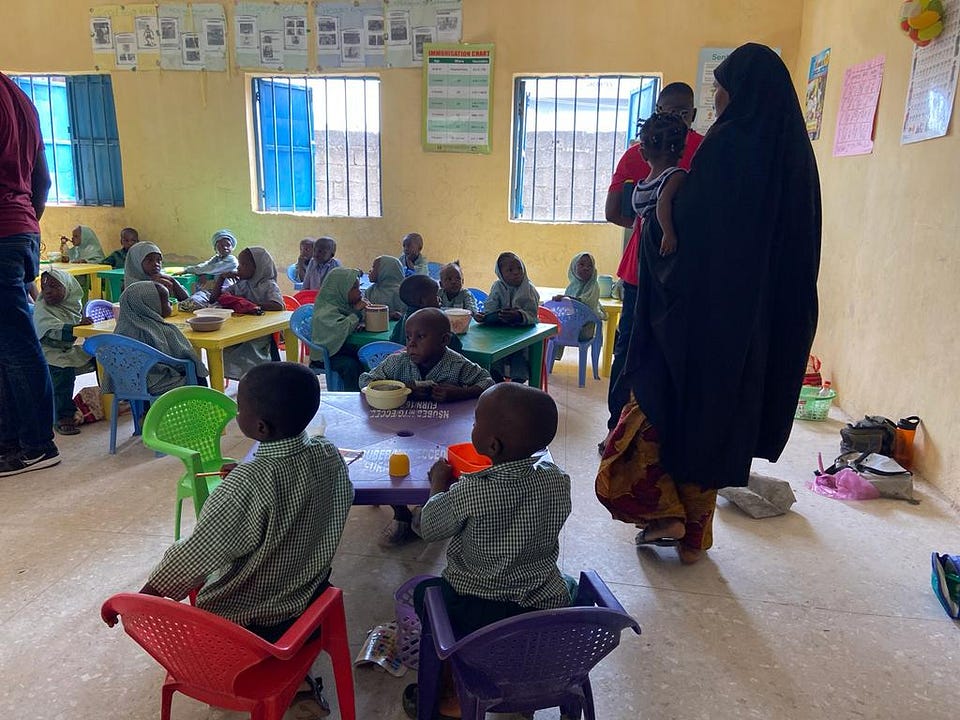

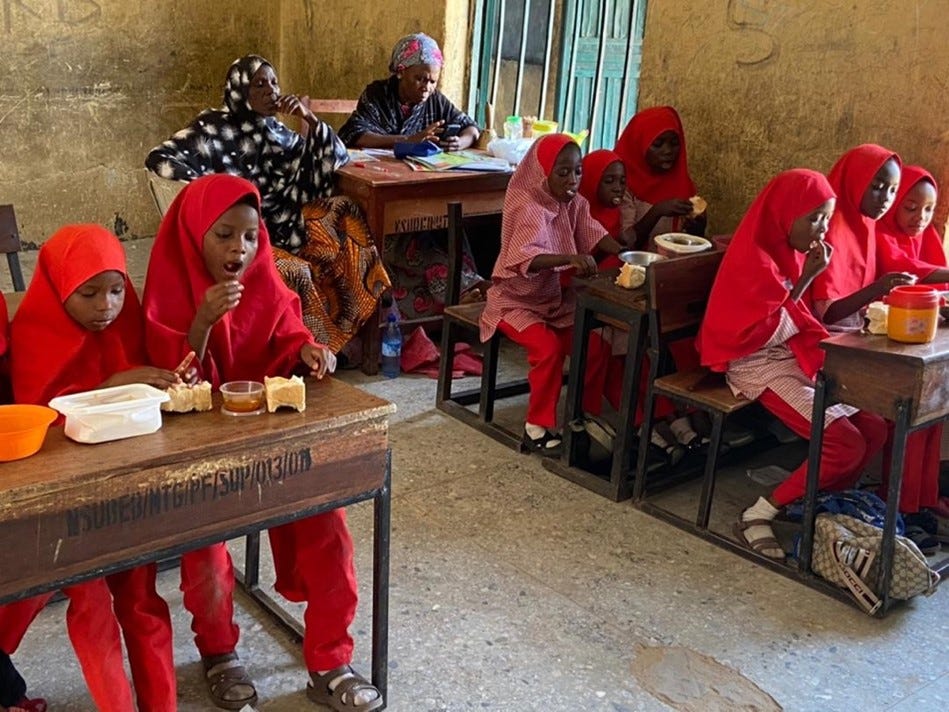
According to Agela Wada, Head Teacher, Umaru Audi Memorial Primary School, Minna, in addition to improving nutrition, the programme has also catalysed increased school enrolment. Barrister Gu’ar revealed that there has been a 35.6% increase in school enrolment since the beginning of the Home-Grown School Feeding Programme in the state.

For some children the daily meal they receive is often their only regular and nutritious meal. The meals include: rice, beef, yam, egg, soya bean cheese, bread and beans. The cost of a meal for each child is 70 naira but Ndashacba said they received recent approval to increase it to 100 naira per child. This will be implemented soon, he added.

According to Barrister Gu’ar, at the beginning of the programme, the management in the state collaborated with nutritionists to formulate menus to be prepared by the vendors to serve the children on a daily basis. This is to ensure that the children’s daily food contains the balanced diet needed for their growth and development.

The Home-Grown School Feeding Program in Niger State has enabled economic growth in the state by creating over 9500 jobs in the state. The program has 5971 cooks, 2,368 cheese makers, 846 aggregators and 1,146 local suppliers.

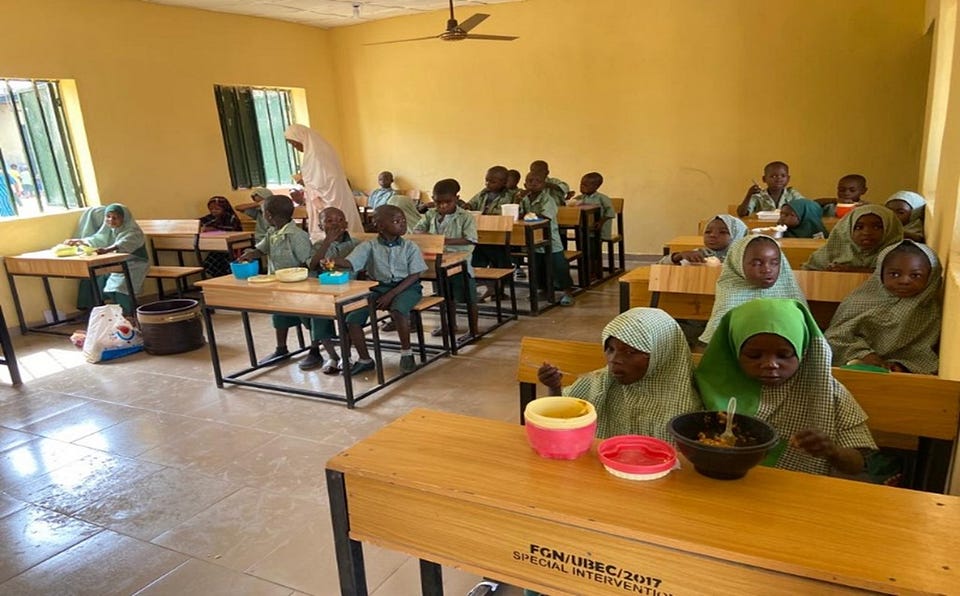

Despite the programme’s success, some constraints limit its smooth execution. According to Barrister Amina Gu’ar, late payment from the government is a major challenge that threatens the programme’s implementation.
Furthermore, it was reported that some cooks hoarded some of the foodstuff allotted to them. To address this, Barrister Gu’ar said that they are collaborating with the Department of State Services to resolve this concern by reporting any cook who is accused of this behaviour to the security agency for prosecution.


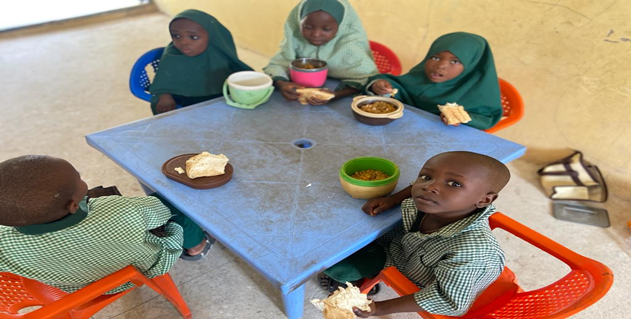


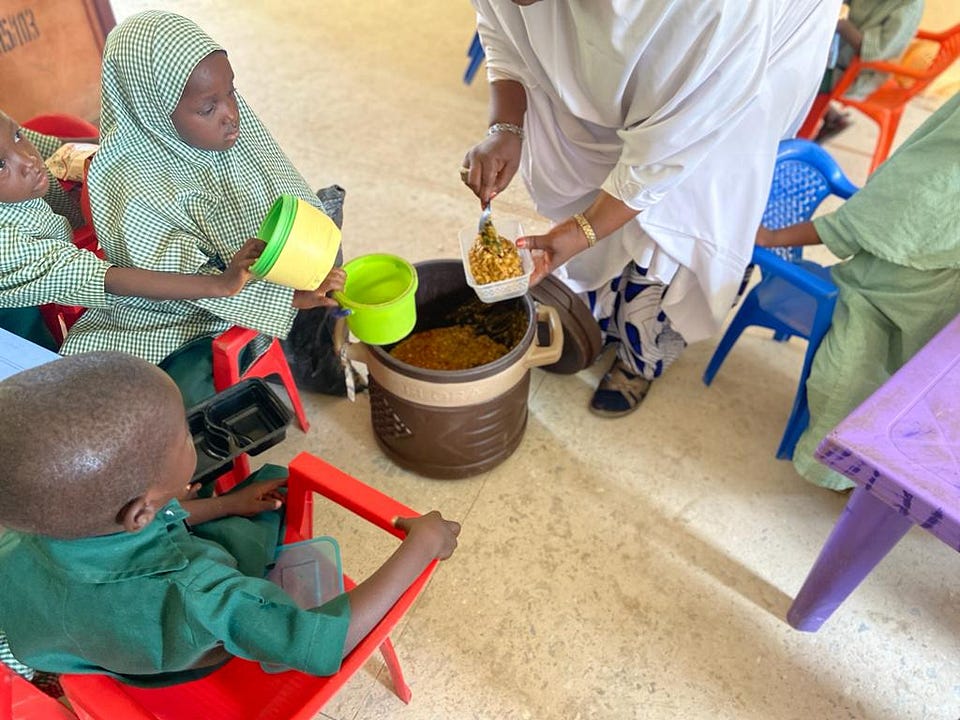
Educational and nutritional experts agree with the assertion that nutritional and health status are powerful influences on children’s learning abilities, and on how well they perform in school. Therefore, while we commend the positive impact of the Niger State Home-Grown School Feeding Programme on school enrolment, malnutrition and possibly economic development, we look forward to seeing the programme scaled up to the remaining 375 schools not on the programme.
Government should continue reviewing the cost of a meal per child. While the focus is on ‘making cost effective’ meals, the nutritional status of such meals might be compromised if the cost is not reviewed in line with Nigeria’s current economic reality.
Poor nutrition in children is a global problem and a pressing issue in Nigeria. Additionally, Nigeria struggles with poor school attendance, with an estimated 10.5 million of the country’s children aged 5–14 years out-of-school. Sustaining the national home-grown school feeding programme is critical as it could be a solution to nutrition-related health problems among school children in Nigeria.





Excellent initiative
Home based school feeding program is a laudable project that can enhance enrolment, attendance and increase girl child education. Thus, poor homes and parents can be encouraged to send their children and wards to school.